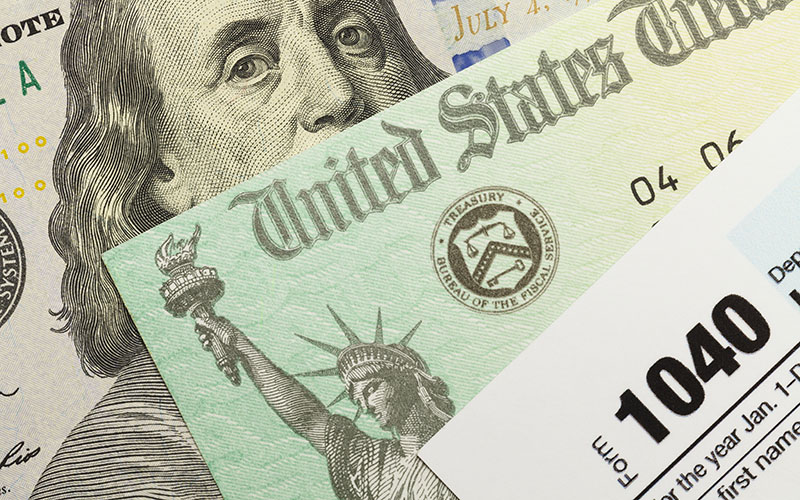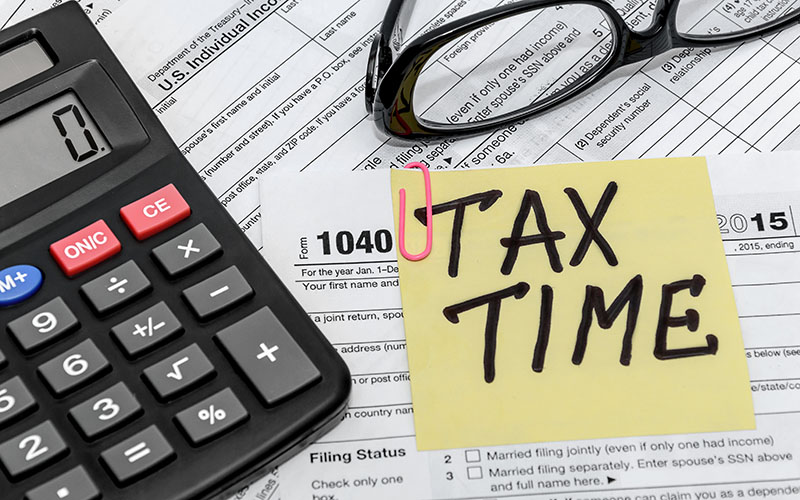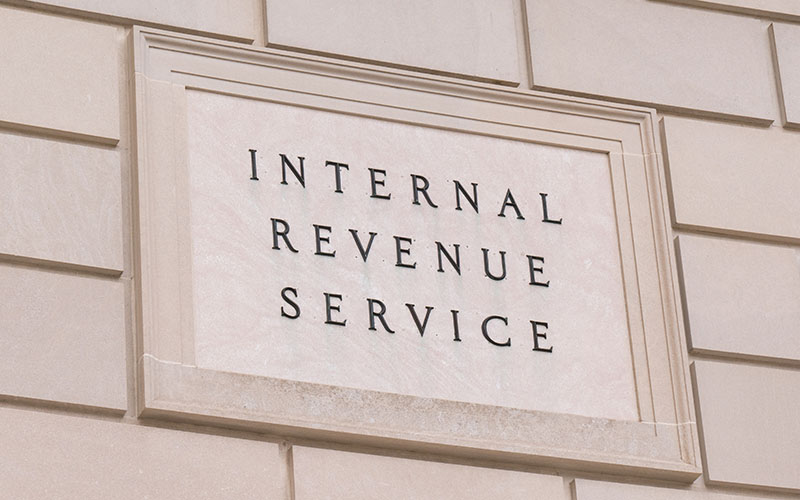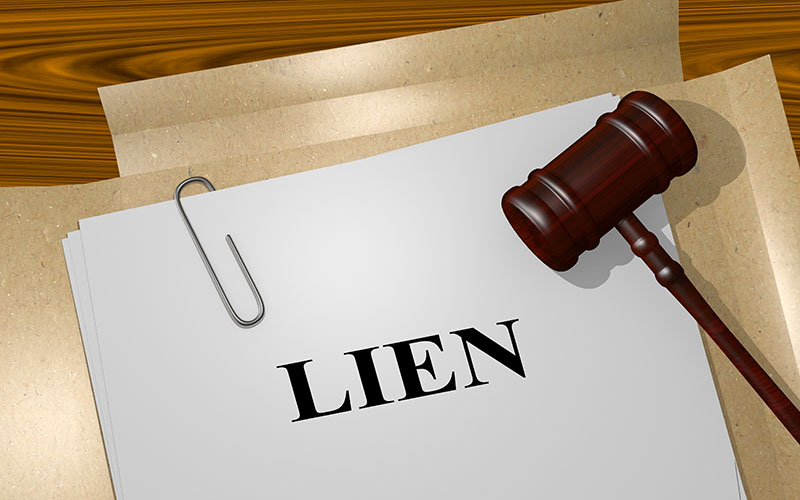Best Tax Relief Options
Key Takeaways
- Owing back taxes can feel overwhelming, especially with the IRS's power to garnish wages, seize assets, and place liens on property and bank accounts
- Prompt action is crucial since the sooner you act, the more options you’ll have to manage or settle your tax debt
- Know your rights, understand your options, and choose trustworthy professionals to guide you toward financial recovery

Owing back taxes to the IRS and dealing with the difficulty of paying it back may feel like a hopeless situation. After all, the IRS has a good deal of authority when it comes to collecting tax debt: they can seize your personal assets, put a lien on your bank accounts, garnish income from your wages/retirement/social security, and even hold onto your future tax refunds.
When you are deep in tax debt, you have a number of options ranging from payment plans to an Offer in Compromise -- all of which have wildly different results.
With so many options, you may not even know where to start. Luckily, we put together a guide on finding the best tax relief option to settle your debt based on your unique situation.

How Can Tax Relief Help Me?
There is no easy solution for tax debt. Your best case scenario depends greatly on your current financial situation.
While you can tackle a low amount of tax debt (less than $10,000) on your own by setting up an installment agreement through the IRS, we recommend consulting a tax specialist to help you decide on the best option for you.
Contacting a professional to look at your overall tax situation can help you solve tax debt problem more quickly and ensure that you can get results through specific approaches that you might not even have known about. They can determine if you are eligible for certain tax relief programs, handle IRS negotiations, and assist you with the necessary steps to get you on your way to being debt-free.
Most tax firms allow you to have a free initial consultation and speak with a tax specialist before making a decision. The majority of national tax relief companies have attorneys who are licensed to work in all or most states; a state-licensed tax attorney can help you deal with state tax debt, which is an advantage if you owe both state and federal taxes.
The faster you act, the more solutions you will have available. If you wait to take care of your tax situation, the tax debt collection attempts will become much more aggressive.
Debt Relief, Taxes, And The IRS
Debt relief (we are talking about regular debt and not tax debt) is a method in which you can reduce or consolidate your debt by either negotiating your debt with creditors (debt settlement), combining your high-interest debts into one lower-interest debt, or creating a debt management plan.
These other forms of debt relief have the potential to affect your taxes since the IRS treats settled debt as income, which you are required to pay taxes on. If you can prove that you settled your debts while you were struggling with financial hardship, you can ask the IRS to waive the tax liability on your income taxes.
What Are My Tax Relief Options?
The first factor to keep in mind is that you should always file your taxes -- even if you can't pay.
If you don't file by the tax deadline, you can incur a 5% to 25% monthly penalty for your unpaid taxes. Even if you can't pay the full amount, at least pay as much as you can to avoid the burden of interest and penalties. In the case you need more time to file a tax return, you can request an extension.
Before you even get to tax season, make sure that you are taking preventative measures such as budgeting and filing quarterly (if necessary). You should also consult a licensed CPA to discuss your best options.
Once you've enlisted the help of a tax specialist (or you are tackling the issue on your own), it's time to decide on which tax relief option is right for you.
The IRS can't collect taxes you are unable to pay, so in the case that your cost of living exceeds the tax amount that you can afford to pay in the required 120 days, you may qualify for a debt forgiveness program.
The IRS Fresh Start initiative helps consumers resolve their tax debt by offering several methods of relief like an Offer in Compromise, installment payments, and penalty relief.
In an extreme circumstance (like the death of a family member, loss of your job, or if you have been affected by a natural disaster), the IRS may opt to not collect on any of your tax debt.
Below, we break down your different tax relief options based on your unique situation. Keep in mind that your method of tax relief will probably be a combination of two or more different means of tax relief (such as Penalty Abatement and an installment agreement).
What Should I Do If...?
I Want To Reduce My Total Debt: Offer In Compromise
When you owe more taxes than what you can afford to pay, an Offer in Compromise might be the best solution for you. This allows you to resolve your IRS debt for less than what you owe but only under specific circumstances.
An OIC lets you settle your debt for less than what you owe and pay a reduced lump sum or request a short-term payment plan from the IRS -- usually fixed monthly installments that last two years.
To qualify, you must be able to prove that paying your debt will cause financial hardship by submitting documents and reasoning as to why you need to pay less. This is something that only around a quarter of taxpayers are eligible for, although you will have more luck qualifying for an OIC if you hire a tax relief company.
Qualifying for an OIC for other reasons besides Doubt as to Liability (which is a genuine dispute as to the amount or existence of the correct tax debt), you must meet certain requirements:
- All required tax forms must have been filed.
- All required tax payments for the current year have been paid.
- You can't have an open bankruptcy petition for individuals or businesses.
- You must have paid the current quarter tax payments if you are a business owner with employees.
To request an OIC from the IRS, you must submit Form 433-A (if you are an individual) or form 433-B (if you are a business). You either pay an application fee of $186, 20% of the proposed lump sum payment, or an amount that is equal to the first proposed monthly installment payment. If you are an individual or sole proprietor who qualifies for Low Income Certification under IRS guidelines, you can be exempted from paying the application fee.
The Fresh Start initiative makes it easier for taxpayers to qualify for an OIC due to their flexible guidelines:
- Individuals do not have to disclose detailed financial information to the IRS to prove their ability to pay.
- If you pay the IRS back in five or fewer months, they will only look at your next year of future income when determining what they can collect from you. If you have a payment plan with installments lasting 6 to 24 months, the IRS will only look at two years of future income.
- You can make your student loan minimum payments guaranteed by the federal government.
- You may be able to pay delinquent local, state, or federal taxes in monthly installments if you can't pay them in full.
- The IRS expanded the standard allowance for Allowable Living Expense to include bank fees, credit card payments, and more.
I Can Pay My Taxes But Not Right Away: Installment Agreement
An installment agreement is a long-term repayment plan that you can set up with the IRS for one (or more) of your tax returns.
Installment agreements are ideal if you need more than 120 days to pay off your full tax amount and if you owe less than $50,000 (including interest and penalties). There are several types of payment plans (such as Complex Installment Agreements, Staggered Installment Agreements, and Streamline Installment Agreements) but the most commonly used ones are:
- Partial Payment Plan: This plan allows you to pay a fixed low monthly amount for 36 to 72 months. It is similar to an Offer in Compromise due to the fact that it forgives a portion of your debt but offers a longer repayment period for taxpayers who can't pay the full balance initially or aren't eligible for an OIC. They also don't offer as much debt forgiveness, although it is generally easier to qualify for.
- Full Payment Installment Agreement: This lets you pay your full tax amount in a period of around 10 years or less.
Keep in mind that payment plans come with interest and penalties, which can add to your tax debt.
While you can submit an online application for installment agreements through the IRS Online Payment Agreement page, a tax specialist can negotiate a low monthly payment with the IRS on your behalf to get the best installment agreement for you.
Even if you owe tax debt over $50,000, you may still be able to get an installment agreement, but you must bring your balance under $50,000 or file a Collection Information Statement (Form 433-A or Form 433-F).
I Want To Reduce The Interest and Penalties: Penalty Abatement
Penalty Abatements reduce or remove penalties and interest (which can go as high as 25%). These are usually available as a one-time option for taxpayers who either opt for those who can pay for a monthly installment agreement or in full. You can also qualify for administrative relief if an IRS agent gives you incorrect information over the phone. You can only abate interest on abated penalties, which can save you thousands on your final tax bill.
To qualify for a Penalty Abatement, you must meet certain requirements:
- You have paid or arranged to have your taxes paid.
- You have filed all of your current required tax returns or filed a time extension to file.
- You either don't have any penalties for the 3 tax years prior to the tax year you received a penalty or you didn't previously file a tax return.
I Can't Afford To Pay Right Now: Currently Not Collectible
Currently Not Collectible (CNC) stops any collections actions if you can prove to the IRS that you don't have any means to pay your tax debt.
The IRS will stop collection actions (like levies or a Notice of Federal Tax Liens against your property) if you can show that the cost of paying your taxes will cause your living expenses to be impossible.
I Can Pay Soon: Ask For A Deferment
You can delay your tax payment temporarily if you are able to prove to them that you won't be able to afford your basic living expense, but keep in mind that you will eventually have to pay your debt with the added interest and penalties.
You can also ask for a deferment when the IRS may agree to hold off on collecting your tax debt (for a year or more) until your financial situation improves. Be sure to file a collection appeal with the IRS to explain how the situation could be resolved in order to stop an IRS levy, lien, denial of an installment agreement, or asset seizure.
I Can Use Personal Assets To Pay My Debt: Tax Lien Subordination
A tax lien subordination is an IRS agreement that allows you to get money from your assets in order to pay your tax debt.
I Can't Find Another Viable Solution: Bankruptcy
Filing for bankruptcy is used by taxpayers to getting rid of their tax debt, but this should only be something you consider as a last-ditch effort and if your income tax debts are eligible.
A Chapter 7 bankruptcy allows you to discharge all of your allowable debts while a Chapter 13 bankruptcy discharges some of your debts and then provides a payment plan for the rest.
Bear in mind that a bankruptcy will cause serious damage to your credit.
These Tax Problems Are My Spouse's: Innocent Spouse Relief
Innocent spouse relief allows you to qualify for tax debt forgiveness in the case that your spouse incurred tax debt without your knowledge.
How Do I Find A Reputable Tax Relief Service?
With so many tax relief services, it may be difficult to know which one will best fit your needs. When you are looking for the right tax relief company, you can take a few steps to make sure that you are working with the most reputable services:
-
You can check sources like the BBB (Better Business Bureau), Rip Off Report, and Trustpilot to get honest customer feedback to gauge their reputation.
-
You can research a company to check their accreditations and memberships, like those from the NAEA (National Association of Enrolled Agents) and the NATP (National Association of Tax Professionals).
-
Check their staff to see if they include licensed and enrolled agents, CPAs, and attorneys.
-
A reputable tax relief company will offer a free initial consultation to look at your entire financial situation before making any recommendations for your tax relief situation.
-
Reputable tax relief companies don't require any upfront payments for services not rendered, although some companies may charge a small fee in order to hire a tax professional to do the necessary research.
-
Tax relief companies should offer their services in-house through their own team of licensed professionals.
-
Tax debt companies should offer a variety of services that include:
- Asset seizers
- Audit protection
- Audit representation
- Back taxes (unfiled returns)
- Bookkeeping services
- Corporate tax preparation
- Free tax consultations
- Garnishment and levy release
- Individual state tax relief services
- Installment agreements
- Penalty abatements
- Tax audits
- Tax liens
- Tax preparation
-
Tax relief companies should include you during the process instead of making decisions without consulting you. They should also educate you on your consumer rights and assist you in making the best financial decisions for your situation.
-
Tax settlement services should offer you some kind of refund or a money back guarantee in case their services don't work for you to put some accountability on their end.
-
Avoid companies with unethical practices and keep an eye out for red flags, which include signs like:
- Charging high fees upfront without rendering any services, especially if this done without contacting the IRS to gather your information. They usually promise to deliver on results but then refuse a refund because it is not part of their policy. Many of these companies are shut down by the state Attorney General due to unethical practices and then change their name before continuing the same unlawful practices.
- Companies claiming to settle your debt for "pennies on the dollar" for an Offer in Compromise, when in reality they charge high fees to give you a quick settlement but don't deliver on any results.
- Tax relief services that promise to accept every single case. They should examine your individual circumstances before making recommendations to help you or let you know that their services can't help you. They may also refer you to another company or their partners to help you further.
- Companies that act as tax relief providers are also common in the tax relief industry. Many of these scammers advertise tax relief services but sell your information to other tax services and take a cut of the payment.
- Tax firms should not ask you for your financial information over the phone. If a tax firm is pushing you to give them your credit card (and other personal) information over the phone, then be sure to stay away.
We recommend working with reputable companies that offer you all these benefits, such as Anthem Tax Services. Our top tax firms offer money back guarantees, a wide variety of services, numerous accreditations, and excellent customer service.
Do tax relief services actually work?
A reputable tax relief service can help taxpayers lower their debt and deal with tax issues from the IRS, such as back taxes, wage garnishments, audit guidance, and working out payment agreements.
What are some factors to look for in a tax relief company?
- Accreditations
- A positive reputation
- A staff with tax professionals
- A free consultation
- In-house services
- A wide variety of services that can assist with audit representation, back taxes, garnishment and levy release, installment agreements, tax liens, and more
What are my tax relief options?
Depending on your specific situation, tax relief options may include an Offer in Compromise, installment agreement, penalty abatement, currently not collectible status, a deferment, tax lien subordination, and more.
Edited by:
Bryan Huynh
•
Product Tester & Writer


























